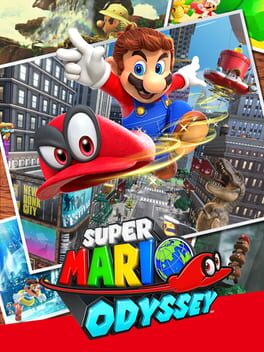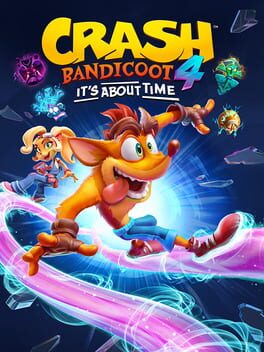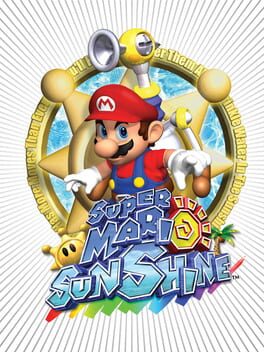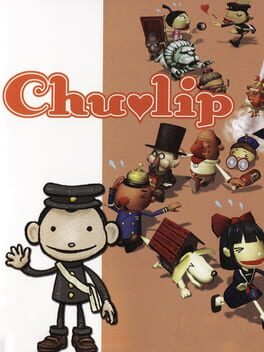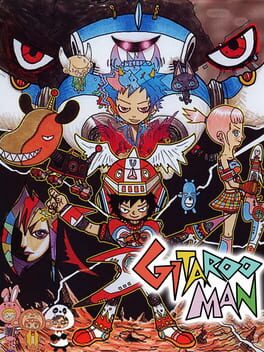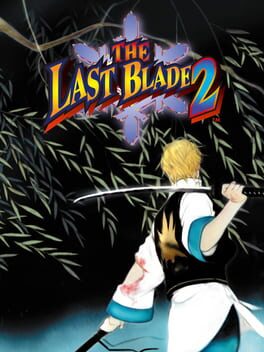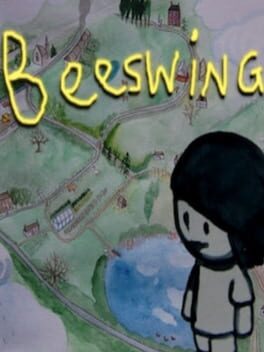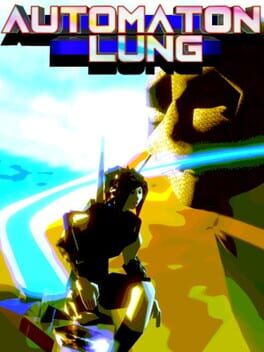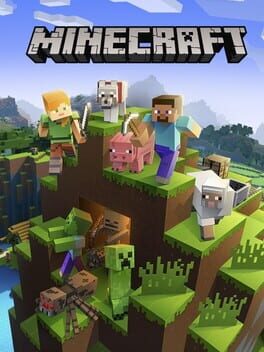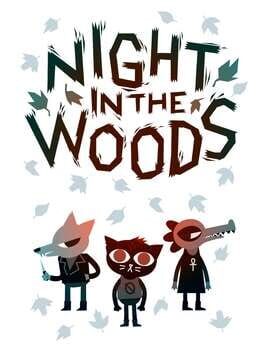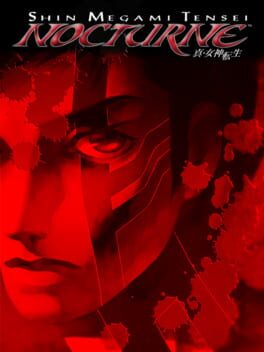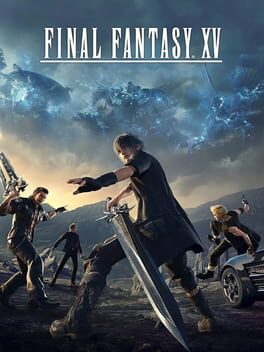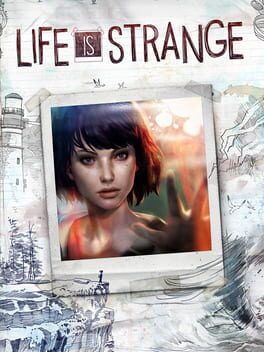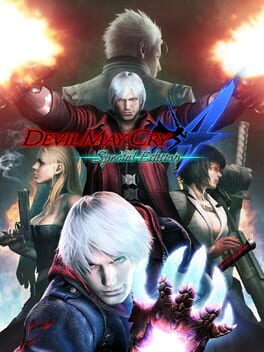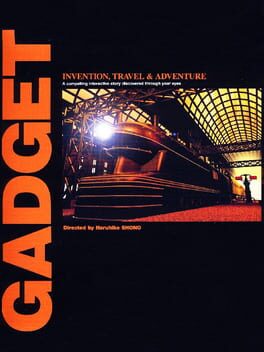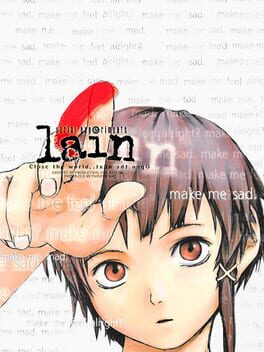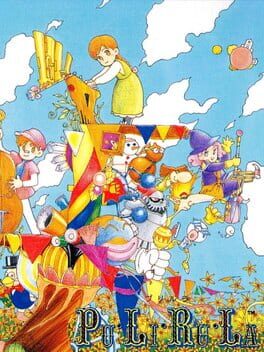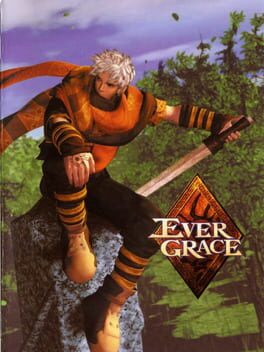MithewZ
6 reviews liked by MithewZ
Super Mario Odyssey
2017
It's the Mario game that most understands the character's status as the ultimate video game icon. The structure is simple and has been repeated since 1985, but the decision to transform Mario's "world to world" visits into a trip around the globe (with a tour guide) is brilliant.
While I was playing Super Mario Odyssey I couldn't stop thinking about how it's a game similar to One Piece (it'll make sense, I promise). Firstly because: it's a lot about recognizing that the strong feelings you have while playing come much more through the journey than through any conclusion that may exist (and One Piece may end someday, but Mario never will).
Secondly, because like the Gear 5 transformation, it's a game almost entirely about the malleability of Mario's body, how he reacts to the environment, and vice versa. One of the best feelings you can have playing Super Mario Odyssey is catching one of the many Moons and thinking "was it supposed to be done like that?". It doesn't matter how you arrived at the goal, it matters how you played with the geometry of the levels and Mario's moveset.
It's bizarre to write so many words about the thematic importance of a Mario game, but the fact is that this game is very concise and rounded in what it wants to discuss about the character. It's a celebratory game about recognizing Mario's place in the global media canon, and in doing so it needs to recognize the most primal aspect of the character: he's an actor, a jack of all trades; He's a plumber, a kart driver, a tennis player, a doctor, he's Mario.
In this game, Mario is Bullet Bill, Goomba, Hammer Bro, Yoshi... Mario is whoever he needs to be when the situation demands his messianic presence. At first glance, the mechanics of transforming the game into 2D (several times) may seem out of place, but it is building precisely towards this point of adaptability of the figure of Mario.
Mario saved video games with Super Mario Bros., of course, but Mario is also Jump Man; his first appearance is not even in his own game, it is in the Donkey Kong franchise. How could THE video game icon, who was born in a franchise that is not his own, not take the freedom to visit any place? to transform into whoever he wants?
Super Mario Odyssey is a manifesto about freedom, it's a game full of expression and charisma in every corner, it's there to remind you to always be or do what you want. The game ending on the Moon is especially symbolic, because if for human beings visiting it was a moment of great evolution and celebration, for Mario it is another Monday. But it's another Monday that he can only have thanks to having grown up and matured with humanity. Mario has already had two games exploring planets, but the Moon's ambition is palpable; after 32 years Mario was finally able to see planet Earth from there. It's time to realize how great his achievements are, how many people he reached over during his journey.
"Thank you, Mario. It's been an honor walking a mile on your head".
While I was playing Super Mario Odyssey I couldn't stop thinking about how it's a game similar to One Piece (it'll make sense, I promise). Firstly because: it's a lot about recognizing that the strong feelings you have while playing come much more through the journey than through any conclusion that may exist (and One Piece may end someday, but Mario never will).
Secondly, because like the Gear 5 transformation, it's a game almost entirely about the malleability of Mario's body, how he reacts to the environment, and vice versa. One of the best feelings you can have playing Super Mario Odyssey is catching one of the many Moons and thinking "was it supposed to be done like that?". It doesn't matter how you arrived at the goal, it matters how you played with the geometry of the levels and Mario's moveset.
It's bizarre to write so many words about the thematic importance of a Mario game, but the fact is that this game is very concise and rounded in what it wants to discuss about the character. It's a celebratory game about recognizing Mario's place in the global media canon, and in doing so it needs to recognize the most primal aspect of the character: he's an actor, a jack of all trades; He's a plumber, a kart driver, a tennis player, a doctor, he's Mario.
In this game, Mario is Bullet Bill, Goomba, Hammer Bro, Yoshi... Mario is whoever he needs to be when the situation demands his messianic presence. At first glance, the mechanics of transforming the game into 2D (several times) may seem out of place, but it is building precisely towards this point of adaptability of the figure of Mario.
Mario saved video games with Super Mario Bros., of course, but Mario is also Jump Man; his first appearance is not even in his own game, it is in the Donkey Kong franchise. How could THE video game icon, who was born in a franchise that is not his own, not take the freedom to visit any place? to transform into whoever he wants?
Super Mario Odyssey is a manifesto about freedom, it's a game full of expression and charisma in every corner, it's there to remind you to always be or do what you want. The game ending on the Moon is especially symbolic, because if for human beings visiting it was a moment of great evolution and celebration, for Mario it is another Monday. But it's another Monday that he can only have thanks to having grown up and matured with humanity. Mario has already had two games exploring planets, but the Moon's ambition is palpable; after 32 years Mario was finally able to see planet Earth from there. It's time to realize how great his achievements are, how many people he reached over during his journey.
"Thank you, Mario. It's been an honor walking a mile on your head".
MGS4 decimated all the symbols and mannerisms of the franchise, until there was nothing left to enjoy. Phantom Pain exists in a completely irrelevant space, it is a game that has no "story to tell", because all the stories are already established.
More post-modern than MGS2, it serves to prove that Metal Gear never had a "fourth wall" and canonize the player as a in-universe character. We are a phantom that repeats the steps of the legend, but we are the legend. Venom Snake doesn't take more actions than the player would, because he does what Big Boss would do... and the player has already been Big Boss -twice-.
You are Venom, Venom is Big Boss, Big Boss is Snake, Snake was Solid Snake and Raiden. Choose who you want to be today, choose the game you want to play. Let it die but with hope for the future.
More post-modern than MGS2, it serves to prove that Metal Gear never had a "fourth wall" and canonize the player as a in-universe character. We are a phantom that repeats the steps of the legend, but we are the legend. Venom Snake doesn't take more actions than the player would, because he does what Big Boss would do... and the player has already been Big Boss -twice-.
You are Venom, Venom is Big Boss, Big Boss is Snake, Snake was Solid Snake and Raiden. Choose who you want to be today, choose the game you want to play. Let it die but with hope for the future.
I today ended a journey of literally two years. I was playing this game since 2021. It took so long to finish that I started playing on PS4 and finished on PS5.
I recently played 'Battletoads (2020)' from start to finish with two other friends, and the consensus between us is that it was one of the most boring and lifeless games we've ever played. 'Battletoads (2020)' has the need to be excessively long in everything he does. It's a game that pays "tribute" to older games in the franchise, but treats everything with Rare's cheap cynicism and a humor that dated 20 years ago. There are A LOT of different mechanics shoved down your throat, mini-games that exist for the sole purpose of inflating gameplay time, etc.
Finishing Crash 4, after two years of playing, I can say that it's basically 'Battletoads (2020)', but in 3D. There are 5 playable characters (4 with completely different gameplay), 10 worlds and 64 levels. Each level has an average of 10 minutes and more than 100 boxes. Of course, the main gimmick of the game is the masks. There are 4 kinds of mask, that are constantly used together in the levels (because this game doesn't know how to deliver anything in small doses).
Crash 4 is symptomatic of the current trend of increasingly inflating video games with empty content so that they are considered "big" and worth the money. 5 hours of gameplay are not worth 60 dollars, you need to have played at least 10 in a full price game (regardless of the quality of those hours).
It's comical and depressing at the same time, because it's very rare for me to play a game where everything seems to have been meticulously calculated to go wrong. I'm glad the game sold well, because Crash is a cool franchise to experiment, but if the next game is like this one, I could not play Crash for another 10 years -like Battletoads-.
I recently played 'Battletoads (2020)' from start to finish with two other friends, and the consensus between us is that it was one of the most boring and lifeless games we've ever played. 'Battletoads (2020)' has the need to be excessively long in everything he does. It's a game that pays "tribute" to older games in the franchise, but treats everything with Rare's cheap cynicism and a humor that dated 20 years ago. There are A LOT of different mechanics shoved down your throat, mini-games that exist for the sole purpose of inflating gameplay time, etc.
Finishing Crash 4, after two years of playing, I can say that it's basically 'Battletoads (2020)', but in 3D. There are 5 playable characters (4 with completely different gameplay), 10 worlds and 64 levels. Each level has an average of 10 minutes and more than 100 boxes. Of course, the main gimmick of the game is the masks. There are 4 kinds of mask, that are constantly used together in the levels (because this game doesn't know how to deliver anything in small doses).
Crash 4 is symptomatic of the current trend of increasingly inflating video games with empty content so that they are considered "big" and worth the money. 5 hours of gameplay are not worth 60 dollars, you need to have played at least 10 in a full price game (regardless of the quality of those hours).
It's comical and depressing at the same time, because it's very rare for me to play a game where everything seems to have been meticulously calculated to go wrong. I'm glad the game sold well, because Crash is a cool franchise to experiment, but if the next game is like this one, I could not play Crash for another 10 years -like Battletoads-.
Super Mario Sunshine
2002
Mario is a touchy subject for me. I love these games so much, and it's probably the most consistently good (big) franchise out there in video games.
But I also have a hard time LOVING a Mario game, because they are all geniuses in different ways, and they all also have very annoying flaws that take me away from the experience. Usually playing a Mario game to the end is what makes me like them the least, because the longer I play, more the little things annoy me.
The exceptions (from the good Mario games) are: Super Mario 3D Land and Super Mario World. 3D Land because I don't think it's great at anything, but I don't think it's bad at anything either (apart from being too easy), so it doesn't have highs like other good Mario games, but it doesn't have lows like those games either. And Super Mario World because I like absolutely everything about it, one of the best platformers ever made, I just don't like it enough to say it's one of my favorite things in life.
I wish I could say that about Sunshine. It's a game that starts out relatively lukewarm, Bianco Hills isn't the most charming stage of all, and Ricco Harbor is a stage that reminds me of the less inspired moments of Super Mario 64. But moving on from those two? It's literally the most beautiful game I've ever played. Honestly, I don't think I've ever been so impressed with art direction in a videogame in my life. The amount of variety they manage to do with the paradisiacal theme and the amount of life they manage to bring to these settings is unbelievable.
I could brag about all the separate elements of Super Mario Sunshine forever, but my problem with it is the way it approaches them in the structure of the game. It's hard to make a sequel to Super Mario 64. How do you follow one of the most revolutionary games of all time without just repeating the formula? The answer for those looking back seems simple "ah, add a mechanic that changes Mario's gameplay and the feel of the game like it was with Mario Galaxy and Mario Odyssey", but at the time they were much more nebulous ideas. Behold, this also happened with Sunshine, fluud is Mario's new mechanic and the whole game is designed with you controlling Mario and his water fella.
Which leads to what is perhaps the biggest part of this game's identity: it's much less about feeling Mario and grabbing stars with platforming challenges and much more about how fluud influences that. More than half of the game's stars are mini-games that use water mechanics differently. And this is where the game slips (no pun intended) a little for me.
I mean, in Super Mario 64 not all the stars are satisfying to get, and not all the platform challenges are fun to do, but it's much less because of the gameplay and much more because the level was really poorly designed. The second half of Mario 64 is a collection of abstract interpretations of a 3D setting with some very shallow theme, for Mario to walk and jump freely. On paper is a very good idea, but the less definition on the platforms, the more boring it is to play the game. Super Mario Sunshine has its problem precisely in its diversity. It's a game with very well thought out scenarios, but it relies on the fact that it's always presenting new iterations of its main mechanics, and honestly the work is inconsistent. Like I said, it's a game with a lot of highs, Sunshine has probably my favorite worlds of any Mario, but when he wants to be boring he can quickly do it. It's completely non-sense that you are forced to do the missions in order (unlike Mario 64) and piss me off that you are forced to fight Shadow Mario in all of the stages, he has by far the worst shines in the game.
Overall, it's a game that builds a lot on what its predecessor started, but it's still too confusing to be coherent. But worst than all this: the game is often not intuitive. And not being intuitive is a HUGE sin for a Mario game, maybe that's exactly why he wasn't so well received, and is kind of the ugly duckling of the 3D games in the franchise. You have to get inside the game designer's head to understand what exactly he's asking you to do with FLUUD, it's an adventure-like puzzle at times.
Anyway, the stages are still good until the end, but the more I played the more I thought they could have focused on more specific challenges instead of shooting everywhere. Fatigue grew exponentially, just like in Mario 64. Anyway, at the end of the day I think that's the magic of this game, it's the closest Mario game to a Sonic game, it's the iteration of the franchise where Nintendo's quality control allowed Mario to be a fireman and that the whole game was based on you spraying water. It's beautiful that Super Mario Sunshine exists, it's just not the perfect Mario game yet, at least not for me.
75/120 shines.
But I also have a hard time LOVING a Mario game, because they are all geniuses in different ways, and they all also have very annoying flaws that take me away from the experience. Usually playing a Mario game to the end is what makes me like them the least, because the longer I play, more the little things annoy me.
The exceptions (from the good Mario games) are: Super Mario 3D Land and Super Mario World. 3D Land because I don't think it's great at anything, but I don't think it's bad at anything either (apart from being too easy), so it doesn't have highs like other good Mario games, but it doesn't have lows like those games either. And Super Mario World because I like absolutely everything about it, one of the best platformers ever made, I just don't like it enough to say it's one of my favorite things in life.
I wish I could say that about Sunshine. It's a game that starts out relatively lukewarm, Bianco Hills isn't the most charming stage of all, and Ricco Harbor is a stage that reminds me of the less inspired moments of Super Mario 64. But moving on from those two? It's literally the most beautiful game I've ever played. Honestly, I don't think I've ever been so impressed with art direction in a videogame in my life. The amount of variety they manage to do with the paradisiacal theme and the amount of life they manage to bring to these settings is unbelievable.
I could brag about all the separate elements of Super Mario Sunshine forever, but my problem with it is the way it approaches them in the structure of the game. It's hard to make a sequel to Super Mario 64. How do you follow one of the most revolutionary games of all time without just repeating the formula? The answer for those looking back seems simple "ah, add a mechanic that changes Mario's gameplay and the feel of the game like it was with Mario Galaxy and Mario Odyssey", but at the time they were much more nebulous ideas. Behold, this also happened with Sunshine, fluud is Mario's new mechanic and the whole game is designed with you controlling Mario and his water fella.
Which leads to what is perhaps the biggest part of this game's identity: it's much less about feeling Mario and grabbing stars with platforming challenges and much more about how fluud influences that. More than half of the game's stars are mini-games that use water mechanics differently. And this is where the game slips (no pun intended) a little for me.
I mean, in Super Mario 64 not all the stars are satisfying to get, and not all the platform challenges are fun to do, but it's much less because of the gameplay and much more because the level was really poorly designed. The second half of Mario 64 is a collection of abstract interpretations of a 3D setting with some very shallow theme, for Mario to walk and jump freely. On paper is a very good idea, but the less definition on the platforms, the more boring it is to play the game. Super Mario Sunshine has its problem precisely in its diversity. It's a game with very well thought out scenarios, but it relies on the fact that it's always presenting new iterations of its main mechanics, and honestly the work is inconsistent. Like I said, it's a game with a lot of highs, Sunshine has probably my favorite worlds of any Mario, but when he wants to be boring he can quickly do it. It's completely non-sense that you are forced to do the missions in order (unlike Mario 64) and piss me off that you are forced to fight Shadow Mario in all of the stages, he has by far the worst shines in the game.
Overall, it's a game that builds a lot on what its predecessor started, but it's still too confusing to be coherent. But worst than all this: the game is often not intuitive. And not being intuitive is a HUGE sin for a Mario game, maybe that's exactly why he wasn't so well received, and is kind of the ugly duckling of the 3D games in the franchise. You have to get inside the game designer's head to understand what exactly he's asking you to do with FLUUD, it's an adventure-like puzzle at times.
Anyway, the stages are still good until the end, but the more I played the more I thought they could have focused on more specific challenges instead of shooting everywhere. Fatigue grew exponentially, just like in Mario 64. Anyway, at the end of the day I think that's the magic of this game, it's the closest Mario game to a Sonic game, it's the iteration of the franchise where Nintendo's quality control allowed Mario to be a fireman and that the whole game was based on you spraying water. It's beautiful that Super Mario Sunshine exists, it's just not the perfect Mario game yet, at least not for me.
75/120 shines.
Chulip
2002
Os primeiros 30 minutos de Chulip são eventos pré-determinados pra te induzir a beijar. Chulip se esforça pra fazer a cabeça do jogador de que o mote do jogo é o beijo. Você é ensinado pelo seu professor (in game), e a primeira lição dele é botar em prática o "stealth" que você aprendeu quando resolveu um problema com o cachorro do vizinho, junto de "apertar triângulo" pra beijar.
Depois de jogar o jogo pela primeira vez eu disse pra mim mesmo "esse é o pior professor de todos os tempos, como ele quer me convencer de que o beijo é a coisa mais importante desse jogo se pra você beijar, é necessário dominar literalmente todas as outras mecânicas do jogo?". E é verdade.
Mas Chulip, como jogo, não é um professor comum, ele não mastiga e vomita informação em você, pra depois cobrar mini-testes. Jogar o jogo é o teste, e é um teste constante até o último minuto do gameplay. O método de ensino de Chulip com certeza não é ortodoxo. Ele te faz passar horas esperando e propositadamente te tira de possíveis momentos vitoriosos pra te ver afundando num limbo de frustração.
Ele não te ensina que pra conhecer mais pessoas você precisa aprender a andar de trem, ele não te ensina que é importante olhar os lixos da cidade (num nível de empacar o jogo se você não entender como funciona), ele não te ensina como manejar tempo, ciclo de dia e noite. Chulip não te ensina a jogar.
Porque "jogar" é conhecer, e você precisa conhecer sozinho. Conhecer os cidadãos e do que eles gostam, de quem eles não gostam, que horário eles vão dormir e que horário eles estão escovando os dentes. Chulip não te ensina como andar de trem, porque andar de trem é conhecer outra cidade, e conhecer outra cidade é conhecer mais pessoas. Como você quer se sentir recompensado por sair beijando um monte de pessoas, se você não as conhece. Pior, como você quer ser recompensado se você não conhece a si mesmo?
O beijo em Chulip é a materialização de entender 100% como funciona um indivíduo. Você não beija pra progredir no jogo -ao menos não deveria-, você beija porque ao tomar a decisão de mergulhar dentro dos sistemas do jogo, você trouxe junto a responsabilidade de conhecer quem move aquele mundo. Você literalmente não precisa apertar o triângulo (com exceção do último beijo do jogo) pra terminar Chulip.
Pode-se interpretar ser uma "falha de design" ou "preguiça", mas esse é um dos maiores trunfos desse jogo, ser despreocupado ao ponto de confiar no jogador que ele vai entender esse mundo, assim como os NPC's confiam em você pra te presentear com um beijo.
Você precisa viver Chulip. Entrar no mundo virtual ao ponto de sentir o cheiro das plantações, a brisa suave da cidade do interior. Só assim você aproveita a jornada, porque não é sobre beijar, é sobre criar laços com gente que você vai carregar pro resto da vida dentro do seu coração.
Depois de jogar o jogo pela primeira vez eu disse pra mim mesmo "esse é o pior professor de todos os tempos, como ele quer me convencer de que o beijo é a coisa mais importante desse jogo se pra você beijar, é necessário dominar literalmente todas as outras mecânicas do jogo?". E é verdade.
Mas Chulip, como jogo, não é um professor comum, ele não mastiga e vomita informação em você, pra depois cobrar mini-testes. Jogar o jogo é o teste, e é um teste constante até o último minuto do gameplay. O método de ensino de Chulip com certeza não é ortodoxo. Ele te faz passar horas esperando e propositadamente te tira de possíveis momentos vitoriosos pra te ver afundando num limbo de frustração.
Ele não te ensina que pra conhecer mais pessoas você precisa aprender a andar de trem, ele não te ensina que é importante olhar os lixos da cidade (num nível de empacar o jogo se você não entender como funciona), ele não te ensina como manejar tempo, ciclo de dia e noite. Chulip não te ensina a jogar.
Porque "jogar" é conhecer, e você precisa conhecer sozinho. Conhecer os cidadãos e do que eles gostam, de quem eles não gostam, que horário eles vão dormir e que horário eles estão escovando os dentes. Chulip não te ensina como andar de trem, porque andar de trem é conhecer outra cidade, e conhecer outra cidade é conhecer mais pessoas. Como você quer se sentir recompensado por sair beijando um monte de pessoas, se você não as conhece. Pior, como você quer ser recompensado se você não conhece a si mesmo?
O beijo em Chulip é a materialização de entender 100% como funciona um indivíduo. Você não beija pra progredir no jogo -ao menos não deveria-, você beija porque ao tomar a decisão de mergulhar dentro dos sistemas do jogo, você trouxe junto a responsabilidade de conhecer quem move aquele mundo. Você literalmente não precisa apertar o triângulo (com exceção do último beijo do jogo) pra terminar Chulip.
Pode-se interpretar ser uma "falha de design" ou "preguiça", mas esse é um dos maiores trunfos desse jogo, ser despreocupado ao ponto de confiar no jogador que ele vai entender esse mundo, assim como os NPC's confiam em você pra te presentear com um beijo.
Você precisa viver Chulip. Entrar no mundo virtual ao ponto de sentir o cheiro das plantações, a brisa suave da cidade do interior. Só assim você aproveita a jornada, porque não é sobre beijar, é sobre criar laços com gente que você vai carregar pro resto da vida dentro do seu coração.
Gitaroo Man
2001
This review contains spoilers
GITAROO MAN conta uma fantasia de poder infantil. O crítico de videogames Tim Rogers uma vez descreveu o game designer Yu Suzuki como "um devoto a fazer jogos que poderiam satisfazer todo tipo de desejo adolescente duma lista de fantasia natalina", e essa descrição pode ser aplicada em GITAROO MAN, analisando seu devido contexto.
Se em OUTRUN foi lhe dado um céu azul, uma ferrari e uma namorada, num mundo de simulação da realidade, GITAROO MAN procura criar dentro dele mesmo uma resposta lúdica à vida de U-1 (nosso protagonista), que justifique todos os desejos da lista de fantasiosa de natal do adolescente que tá jogando.
U-1 sofre uma espécie de repressão de seu colega, e vê na música o escapismo supremo de todos os seus problemas. Ele não pode ser sincero com a garota que gosta porque ela sempre ta perto desse cara, então ele é o arqui-inimigo de tantas fantasias que a gente vê por aí. Essa sinceridade precisa escapar por algum lugar, então U-1 adota a figura de seu cachorro "Puma" como um mestre que vai lhe ensinar a arte da guitarra pra lutar contra o mal, depois de ouvir tantas vezes as reclamações infindáveis de seu dono.
A banda que sempre toca pro nosso protagonista provavelmente representa uma banda que ele tem de verdade, mas não faz parte o suficiente dos conflitos da vida dele e nem é "cool" pra participar da fantasia como mais do que plano de fundo pra ELE brilhar. Gregorio III é um inimigo que canta na igreja, e convoca corais pra te atacar. Subconscientemente a igreja é um lugar onde você tem contato com música mas ela te machuca?
A roupa do Gitaroo Man é composta de pedaços de mecha, videogame e instrumentos, os compostos mais legais do quarto de U-1 no imaginário dele. Não a toa, o primeiro chefe do jogo, é totalmente um símbolo de tudo que o protagonista considera infantil de verdade. Bichinhos de pelúcia? Tremzinho de brinquedo? Dinossauro? O que essas coisas tão fazendo no meu quarto? Irado mesmo é tocar rock n roll.
Refletindo sobre a obra de Keiichi Yano, não parava de pensar sobre como o jogo facilmente poderia ter caído na armadilha da fantasia de poder cínica que é tão comumente vista por aí. Eu consegui a garota amada, as coisas que eu gosto são maneiras mesmo, e todo mundo que eu odeio é maniqueistamente odiavel. Acho que o trunfo de GITAROO MAN, não só está em abordar o assunto de uma maneira descompromissada, mas também em deixar claro em todo momento como o próprio Gitaroo Man duvida de sua própria fantasia. Por que eu tô tocando essa música? Por que eu conheci essa garota? Por que eu vou derrotar esse cara?
Como um clássico adolescente na puberdade, U-1 é confuso, e como uma boa melodia, a resposta de todas essas perguntas precisa ser sentida por quem questiona.
"Master the waves"
Se em OUTRUN foi lhe dado um céu azul, uma ferrari e uma namorada, num mundo de simulação da realidade, GITAROO MAN procura criar dentro dele mesmo uma resposta lúdica à vida de U-1 (nosso protagonista), que justifique todos os desejos da lista de fantasiosa de natal do adolescente que tá jogando.
U-1 sofre uma espécie de repressão de seu colega, e vê na música o escapismo supremo de todos os seus problemas. Ele não pode ser sincero com a garota que gosta porque ela sempre ta perto desse cara, então ele é o arqui-inimigo de tantas fantasias que a gente vê por aí. Essa sinceridade precisa escapar por algum lugar, então U-1 adota a figura de seu cachorro "Puma" como um mestre que vai lhe ensinar a arte da guitarra pra lutar contra o mal, depois de ouvir tantas vezes as reclamações infindáveis de seu dono.
A banda que sempre toca pro nosso protagonista provavelmente representa uma banda que ele tem de verdade, mas não faz parte o suficiente dos conflitos da vida dele e nem é "cool" pra participar da fantasia como mais do que plano de fundo pra ELE brilhar. Gregorio III é um inimigo que canta na igreja, e convoca corais pra te atacar. Subconscientemente a igreja é um lugar onde você tem contato com música mas ela te machuca?
A roupa do Gitaroo Man é composta de pedaços de mecha, videogame e instrumentos, os compostos mais legais do quarto de U-1 no imaginário dele. Não a toa, o primeiro chefe do jogo, é totalmente um símbolo de tudo que o protagonista considera infantil de verdade. Bichinhos de pelúcia? Tremzinho de brinquedo? Dinossauro? O que essas coisas tão fazendo no meu quarto? Irado mesmo é tocar rock n roll.
Refletindo sobre a obra de Keiichi Yano, não parava de pensar sobre como o jogo facilmente poderia ter caído na armadilha da fantasia de poder cínica que é tão comumente vista por aí. Eu consegui a garota amada, as coisas que eu gosto são maneiras mesmo, e todo mundo que eu odeio é maniqueistamente odiavel. Acho que o trunfo de GITAROO MAN, não só está em abordar o assunto de uma maneira descompromissada, mas também em deixar claro em todo momento como o próprio Gitaroo Man duvida de sua própria fantasia. Por que eu tô tocando essa música? Por que eu conheci essa garota? Por que eu vou derrotar esse cara?
Como um clássico adolescente na puberdade, U-1 é confuso, e como uma boa melodia, a resposta de todas essas perguntas precisa ser sentida por quem questiona.
"Master the waves"
3 lists liked by MithewZ
